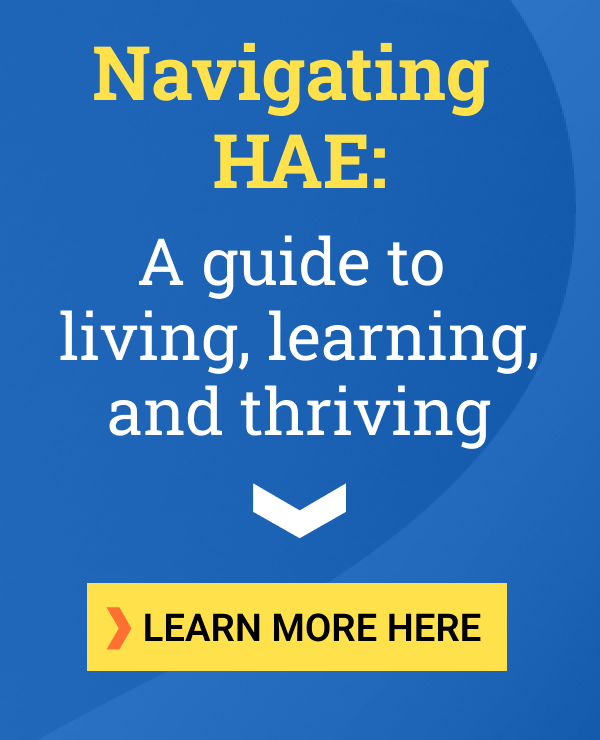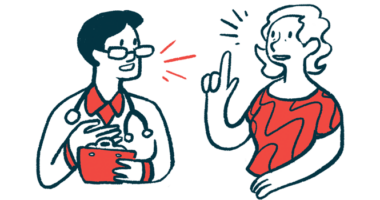Disease changes, coexisting conditions impact older patients
Researchers recruited 17 people with HAE for focus group study

Most older adults with hereditary angioedema (HAE) have more frequent and severe swelling attacks, and more chronic diseases that combine to have a negative impact on their quality of life, results from a focus group study show.
Other age-related difficulties included financial barriers to accessing medication. Despite these challenges, many patients report their quality of life has improved with newer, targeted HAE medications, and they’ve come to accept their condition over time and don’t let it dominate their lives.
Viewpoints of older HAE patients were published in Annals of Allergy, Asthma & Immunology, in “Hereditary Angioedema in Older Adults – Understanding the Patient Perspective.”
HAE is a rare, inherited disorder that features recurrent episodes of painful swelling. While symptoms often begin in childhood or adolescence, attacks can occur at any age and recur throughout life.
Older HAE patient perspective
Older adults with HEA, who may have been diagnosed when there was limited awareness of the condition and a lack of targeted therapies, face unique healthcare challenges, such as multiple coexisting conditions and having to use several medications.
Because of these, “older adults may have particular views of and goals for their health, and a detailed understanding of such issues is crucial to providing optimal, patient-centered care,” wrote a team of researchers in the U.S. who recruited 14 women and three men with HAE type 1 or 2, ages 60 and older, to participate in focus group sessions to better understand the barriers and concerns older HAE patients face.
The patients’ mean age was 65 and, on average, they had HAE symptoms for about 21 years before being diagnosed. They took several medications for both preventive and on-demand therapy, which was used alone by 23% of patients.
Many said they were impacted by an increase in the frequency and severity of attacks and a change of swelling sites on the body
“When they first started, they were not quite as severe, but as I got older, they became more severe,” one participant said. Another said: “It’s predominantly in my hands. As I’ve aged, I’ve had a couple of attacks in my groin area. Maybe a couple of times in my abdomen.”
Some said they needed more time to recover from an HAE swelling attack than when they were younger. “Just the recovery, because of age I guess, it would really pull [you] down, really make you more tired.”
Managing medication
Managing other chronic conditions alongside HAE was also a challenge. Many reported having trouble distinguishing HAE from other conditions and said it was becoming more challenging to remember to take regular medicines to prevent attacks. Some new medications interacted with HAE treatments and many of the medications prescribed many years ago had limited benefits and extensive side effects.
Several patients noted a marked improvement in their quality of life with new therapies, with one calling a new treatment “totally a life-changer.”
The difficulty of accessing medication was also raised, with multiple participants calling limited finances a factor. Some said they ration medications or have delayed retirement so they could keep their income and employer-sponsored health insurance. “I’m very concerned. I do have coverage through my work right now, but at some point, I do want to retire. I honestly don’t think I can afford the cost to completely retire. I’d have to get a part-time job or something,” a participant said.
While patient support programs offered by nonprofits and pharmaceutical companies were recognized as ways to lower the financial burden, many aren’t available with state-sponsored insurance programs, such as Medicare.
“As the majority of older adults are enrolled in a Medicare plan, an inability to access certain financial support programs remains a distinctive barrier in this population,” the researchers wrote.
HAE and quality of life issues
Quality of life issues were also raised and many noted that despite gains realized with new targeted therapies, employment, travel, and social activities were still concerns. Feelings of anxiety and/or depression related to HAE were experienced by many, primarily due to uncertainty about attacks, financial loads, and living with a chronic disease.
Still, participants’ perspectives on HAE have changed with age and many have come to accept their condition. One patient said: “Oh, yeah. You get tough. Trust me.”
Many women described mixed experiences at menopause. One woman reported “fewer attacks, but they’re a lot worse,” while another said her HAE was “very predictable until [she] hit the menopause.” Others said menopause meant no changes or a reduced attack frequency.
Interpersonal relationships were also raised and several participants said HAE influenced their decision about having children. Feelings of guilt for “giving” their children HAE was expressed. “It makes me feel terrible, knowing that I have passed along a disease to my daughter and my grandson now … It’s just a terrible feeling,” one patient said.
Regarding their goals for future HAE care, participants reported wanting fewer attacks and medication side effects, as well as stress reduction. Most said they’d participate in research studies, either to access new therapies or to help aid future research. “I always felt that it was so important for me to do what I could to try to make things better for everybody else,” a patient said.
Most participants expressed a desire to connect with other HAE patients through educational and support groups, and mentoring opportunities.
“I never really even thought about helping people [when younger] because I was searching for help myself. Whereas now that I’ve been dealing with it, and I’ve been through so much over the past essentially 48 years since my first attack, I would love to be a mentor and be able to help,” one patient said.
“Older adults with HAE represent a discrete patient population with distinct challenges, viewpoints, and goals,” the researchers wrote, adding that “ascertaining those perspectives using qualitative methods is vital in understanding what is important to those patients.”









